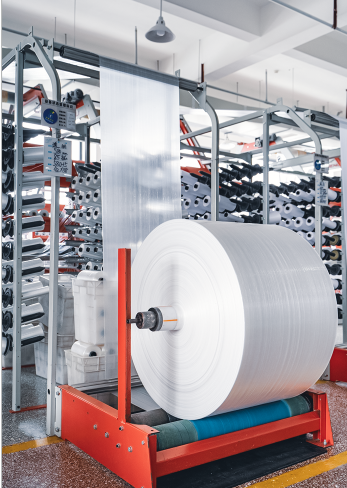Flexible Intermediate Bulk Containers (FIBCs), commonly called bulk bags, are essential in industries that handle large quantities of materials. From agriculture to construction, the right FIBC bulk bag can revolutionize your logistics, improve safety, and enhance operational efficiency. This guide will walk you through the essential aspects of selecting FIBCs, from their suitability for your industry to finding the best FIBC bulk bag manufacturers like XIFA Group.
FIBCs, or fibc jumbo bags, are versatile and cater to various industries. They are ideal for transporting and storing:
If your operations involve bulk material handling, FIBCs provide a cost-effective, durable solution tailored to diverse needs.
Choosing the right FIBC starts with understanding its specifications and features. Let’s break down the critical factors:
Different types of bags are designed for specific uses:
The belts on FIBCs play a crucial role in material handling. Consider:
Matching lifting mechanisms with your equipment is critical:
The size of the bag depends on your load requirements and the type of material being handled. FIBC bulk bags typically hold between 500 kg and 2000 kg, though custom sizes are available for specific applications. Consider factors such as bulk density, flowability, and handling equipment. Oversized or undersized bags can compromise safety and efficiency, so always refer to the fibc bags specification and consult your manufacturer to ensure compatibility with your operational needs.
Customization allows businesses to tailor FIBCs to their specific needs. Here are key features to consider:
For materials sensitive to moisture, consider bags with liners or additional coatings. FIBC liners ensure product integrity by providing a protective barrier against water and humidity. This feature is essential for powdered chemicals, grains, or cement that can degrade with moisture exposure.
Choose fabrics with UV stabilization for bags that will face prolonged sunlight exposure. This feature is crucial for outdoor use, as it enhances the bag’s durability and safeguards the contents from damage caused by the sun’s harmful rays, significantly extending the bag’s lifespan.
Type C bulk bags and Type D FIBCs are designed to handle flammable materials safely. Type C FIBCs require grounding to safely discharge static electricity, making them suitable for environments with flammable gases or dust. Type D FIBCs, on the other hand, use special anti-static fabric that dissipates static without grounding, offering a safer and more flexible option.
Ventilated bags improve air circulation and prevent spoilage of materials like fresh produce or grains. Breathability is crucial when transporting moisture-sensitive goods, as it helps maintain product quality during storage and transit by reducing condensation buildup.
Finding reliable fibc bulk bag manufacturers ensures consistent quality and supply. Here’s what to look for:
Choose manufacturers adhering to ISO standards and UN certifications for safety and quality. For food-grade fibc bulk bags, ensure the supplier meets FDA, BRC, and HACCP compliance. These certifications reflect the highest quality and safety standards required for sensitive materials.
Opt for companies with a proven track record in your industry. Look for manufacturers that have served similar businesses and have documented case studies or customer testimonials. Leading suppliers like XIFA Group are recognized for their durable and customizable products and their consistent performance.
Your supplier should provide a wide range of customizations, such as:
Reliable fibc jumbo bag manufacturing companies should provide worldwide shipping with efficient logistics support. They should offer flexible delivery options, maintain a strong distribution network, and have contingency plans to handle supply chain disruptions, ensuring timely delivery.
XIFA Group is a leading name among fibc bulk bag manufacturers, and it is recognized for its innovative designs and high-quality offerings. Their product range includes Type D FIBC and Type C Bulk Bags, essential for ensuring safety in hazardous environments. Their FIBC Baffle Bags are designed to optimize stacking and storage, while FIBC Liners offer protection against moisture and contamination. By focusing on sustainability and customization, XIFA Group has established itself as a reliable and preferred partner for businesses worldwide.
Discover how XIFA Group can transform your bulk handling operations. Contact them today to explore their versatile product range and find solutions tailored to your specific needs.




